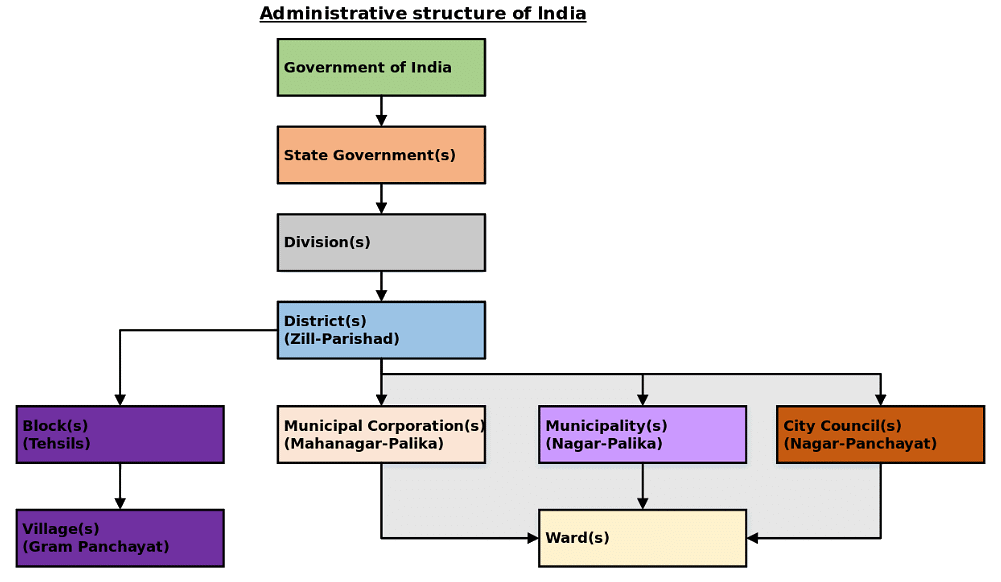Municipal Governance: Main Features, structures, Finance and Problem Areas | Public Administration Optional for UPSC (Notes) PDF Download
| Table of contents |

|
| Introduction |

|
| Main Features of Municipal Governance |

|
| Organizational Structures in Municipal Governance |

|
| Financial Aspects of Municipal Governance: |

|
| Problem Areas in Municipal Governance |

|
Introduction
Municipal governance plays a vital role in shaping the development and functioning of cities and towns. It encompasses a wide range of activities, from managing public services to making policy decisions that impact the lives of residents. This article delves into the main features of municipal governance, explores the various organizational structures commonly found, examines the financial aspects involved, and highlights some of the problem areas that municipalities often face.
Main Features of Municipal Governance
Municipal governance is characterized by several key features that define its nature and scope. Understanding these features is crucial for comprehending the intricacies of local administration and decision-making. Here are some prominent features:
- Local Autonomy: Municipalities have a certain degree of autonomy, allowing them to make decisions and implement policies tailored to their specific needs and challenges. This autonomy promotes local empowerment and enables municipalities to address community concerns effectively.
- Public Service Delivery: One of the primary responsibilities of municipal governance is to ensure the provision of essential public services. This includes utilities such as water supply, sanitation, waste management, transportation, and public safety. Municipalities strive to meet the diverse needs of their residents by delivering these services efficiently and effectively.
- Urban Planning and Development: Another critical aspect of municipal governance is urban planning and development. Municipalities are responsible for managing land use, zoning regulations, and infrastructure development. By formulating comprehensive plans, they aim to create sustainable and livable communities that foster economic growth and quality of life.
Organizational Structures in Municipal Governance
To carry out their functions, municipalities employ various organizational structures. These structures define the roles, responsibilities, and hierarchy within the local administration. Here are some common structures found in municipal governance:
- Mayor-Council System: In this system, a directly elected mayor serves as the chief executive, while a council composed of elected representatives holds legislative powers. The mayor is responsible for executing policies and overseeing municipal departments, while the council makes decisions through legislative processes.
- Council-Manager System: Under this structure, an elected council appoints a professional manager to handle administrative duties. The council sets policies and legislation, and the manager executes them. This system aims to ensure professional expertise in day-to-day operations while maintaining democratic decision-making.
- Commission Form of Government: This model features elected commissioners who both legislate and administer. Each commissioner oversees a specific department or area, making them directly accountable for their respective domains. This structure promotes specialization and efficiency in governance.

Financial Aspects of Municipal Governance:
- Financing municipal operations and initiatives poses significant challenges and requires careful management. Municipalities rely on various revenue sources to fund their activities. Some common financial aspects of municipal governance include:
- Taxation: Property taxes, sales taxes, and local income taxes are the primary sources of revenue for municipalities. These taxes contribute to the funding of public services, infrastructure projects, and administrative costs.
- Intergovernmental Transfers: Municipalities often receive financial support from higher levels of government through intergovernmental transfers. These transfers can be in the form of grants or shared revenues, enabling municipalities to meet their financial obligations.
- User Fees: Charging fees for specific services, such as parking, permits, or recreational activities, allows municipalities to generate additional revenue. User fees help cover the costs associated with providing these services while minimizing the burden on general taxpayers.
Problem Areas in Municipal Governance
Despite their critical role in local governance, municipalities encounter several challenges. Recognizing these problem areas is essential for effective policymaking and improving the overall functioning of municipalities. Here are some common challenges faced by municipal governance:
- Financial Sustainability: Balancing the budget and ensuring long-term financial sustainability is a persistent challenge for many municipalities. Growing infrastructure needs, rising operational costs, and limited revenue sources can strain the financial capacity of local governments.
- Decentralization of Power: Striking the right balance between local autonomy and centralized control can be complex. In some cases, excessive decentralization may lead to fragmentation and inefficiency, while excessive centralization may hinder local decision-making and responsiveness.
- Urbanization and Service Demands: Rapid urbanization places increased demands on municipalities to provide essential services and infrastructure. Meeting the growing needs of a burgeoning population while maintaining service quality can be a daunting task for municipal authorities.
Conclusion
Municipal governance plays a crucial role in shaping the development and functioning of cities and towns. Understanding its main features, organizational structures, financial aspects, and problem areas provides valuable insights into the challenges and opportunities faced by municipalities. By addressing these issues effectively, local governments can strive towards creating vibrant, inclusive, and sustainable communities for their residents.
|
58 videos|242 docs
|















